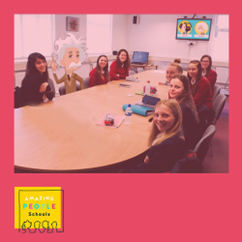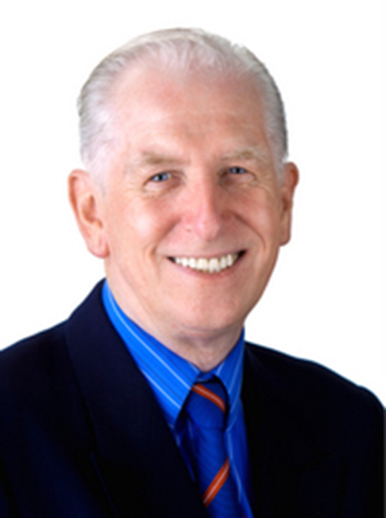AMAZING PEOPLE SCHOOLS NETWORK
Accreditation For Educators
By Dr Charles Margerison
Psychologist
Welcome Notes
Amazing People Schools, known widely as APS, is an organization founded upon the research that I conducted on the careers of over 500 amazing achievers. The research identified key personal and interpersonal factors associated with their success, which are central to character, wellbeing and achievement education.
As a result, a team of educators has developed the suite of resources available via the website www.amazingpeopleschools.com. These resources have been awarded the kite mark of the Association of Character Education. They are used in over 100 schools for assemblies, tutor time and classroom lessons.
The exemplars from whom students can learn include scientists, such as Marie Curie and Percy Julian, technologists such as Thomas Edison, and leaders in medicine, engineering, business, exploration, music, art, human rights, art and other areas.
The resources can be used in all curriculum settings to inspire discussion on the ways and means to achieve and develop your character, despite difficulties and barriers.
The personal factors of what we call the ‘can do spirit’, reflecting resilience and determination, are essential character strengths required, beyond knowledge and academic skills.
These notes provide educators who use the APS resources with continuing professional development information, to improve and support education practices, through action learning.
The APS network is a professional network of educators, with a focus on helping students develop character and communication strengths.
Network members use the resources developed by Amazing People Schools (APS) to help students understand the language and practical application of character in their lives.

In particular, they provide exemplars of achievement for students to understand what is required for ongoing self-development. In addition, the resources support constructive thinking, inclusiveness, diversity and intercultural communication. All of these areas are founded on applied psychological research.
Therefore, the accreditation process encourages educators to share the principles and practice from their classrooms linked via action learning and positive psychology applications.
An Action Learning Approach
The essence of action learning is to meet in groups for discussions with those who are working on similar tasks and challenges, with the objective of helping each other to improve performance. This document outlines the ways in which the groups can work together.
Normally, there are three or four members of the action learning group, which will be facilitated by a member of the Amazing People Schools Team.
The participants outline the ways by which they help students in their classrooms, to focus on character development, wellbeing, interpersonal communication, creativity, personal and social development.
In doing so, members will have the opportunity to understand different approaches from colleagues in their group.


The Group Meetings
Five online meetings will usually be held, that last for between 30 and 45 minutes. The objectives for each one are outlined below;
- A member of the Amazing People Schools team will coordinate the first online meeting. There will be three or four members in each group. Each person will have the opportunity to introduce themselves, their school and indicate their area of work. After the introductions are made, the coordinator will initiate a discussion on character education topics of interest to the members. In particular, each member will be asked to contribute a classroom based case-study based on their use of the APS education resources. The dates on which each person presents their case study will be decided by the members.
- At the second meeting, the member who agreed to present will outline their application of the Amazing People Schools Resources and invite questions. Normally, the outline of the classroom application takes about 10 minutes, followed by 20 to 30 minutes discussion. At the end of the meeting, the member leading the presentation agrees to summarize the main points and send them to the other members and the coordinator.


- At the next meeting, another member presents their application case and discusses the learning points with colleagues in a similar way to the previous session.
- At the next meeting, the third member presents their education case application and responds to the questions to identify the action learning points.
- At the fifth meeting, the coordinator asks each member to share what they learned about themselves and their approach to education.
These meetings are organized by the members to fit in with their work and family commitments. If required, two presentations can be made in one meeting.
Learning Explication Report
When all the presentations have been made, each member agrees to write up their learning points, or send an audio version to the APS coordinator. This serves as the summation for the accreditation and is called the Amazing People Schools (APS) Learning Explication Report.
Organization of Meetings
Action learning is a self-managed process. The members decide the dates, the agenda and time of the meetings. To ensure continuity, it is recommended that the five meetings for the CPD accreditation are completed within 3 months of the commencement date.
Support Resources
Amazing People Schools will support the participants with articles and links to enhance the action learning process. In addition, group members will share links to information they have found valuable.
CPD Recognition
Amazing People Schools provide each participant with a CPD certificate. This is received on the completion of the five meetings and written feedback.


It acknowledges that the participant invested time with colleagues from other schools in an action learning professional development process. The certificate can be used as part of the annual requirement for continuing professional development.
Summary
Amazing People Schools Network provides teachers who are actively engaged in character and communication education, with the opportunity to share and compare their learning from experience.
This is facilitated by a professional educator who coordinates the action learning groups. Each group takes responsibility for the management of their action learning discussion regarding the date and time of meetings.
The CPD provides recognition to educators who have applied the APS resources in their classrooms. In the action learning groups, members will learn from the experiences of other educators by sharing and comparing their applications.
We look forward to sharing and comparing learning experiences in the professional development network meetings.









